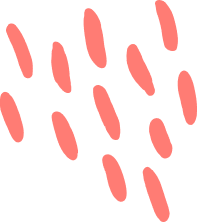Kursk State Medical University

- City: Kursk
- Year of foundation: 1935
- Ranking: NA
- Institution Type: Government
- Website: https://kurskstatemedicaluniversity.org/
-
750 +
Expert Faculty -
NA +
Courses -
19000 +
Over Students -
65 +
Departments
Kursk State Medical University is an esteemed institution known for its commitment to academic excellence and its significant contributions to the field of medicine in English medium. It offers a diverse and multicultural learning environment, attracting students from various countries. The university's infrastructure is cutting-edge, equipped with modern facilities and advanced technology that supports medical education and research. With a strong emphasis on research, students have ample opportunities to engage in scientific inquiries and gain valuable hands-on experience.
Kursk State Medical University has a global perspective, with international recognition and affiliations that make it an attractive destination for students from around the world. The university possesses certification from the Educational Commission for Foreign Medical Graduates (ECFMG) and is affiliated with the Foundation for Advancement of International Medical Education and Research (FAIMER). Furthermore, it has gained approval from the National Medical Council (NMC), along with various other esteemed affiliations. Remarkably, it has earned a coveted place in the prestigious World Directory of Medical Schools (WDOMS).
The faculty and staff bring years of experience and expertise to the institution, ensuring that students receive a comprehensive and up-to-date education. The university is known for its inclusive and welcoming atmosphere, where students of all backgrounds are valued and supported.
About the University
Founded in 1935, Kursk State Medical University is a prestigious medical university offering English medium MBBS in Russia at an affordable cost. It is one of the largest and oldest universities in Kursk and the leading medical educational organizations in Russia. It is rightfully considered the educational, scientific and cultural center of the Black Earth Region.
Since 1994, the KSMU has trained more than 35 thousand doctors and other healthcare specialists. The university have 10 academic buildings and 608 practice bases, 6 dormitories, 10 faculties, International Medical Institute, Institute of Continuing Education, Medical and Pharmaceutical College, 64 departments, Federal Accreditation Center, Research Institute of Experimental Medicine, Research Institute of General Pathology , Research Institute of Physiology, Research Institute of Genetic and Molecular Epidemiology, Experimental Biological Clinic, Consultative and Diagnostic Clinic, library and much more.
Today, the university has more than 745 teaching staff in the educational and research departments. Of these, 133 are doctors and 408 candidates of science. It is home to 9000+ students from 50 countries of the world.
Innovation is a hallmark of Kursk State Medical University, as it continuously implements modern teaching methods and technologies. Its degrees and programs are respected both nationally and internationally, making its graduates highly sought after in the medical field. Moreover, the university offers a culturally enriching experience through a variety of cultural events and extracurricular activities, creating a well-rounded educational journey for its students. Today, the university ranks among the top 10 best universities in the world, according to the Global Aggregate Ranking 2023.
Faculties and Departments
Kursk State Medical University provides various programs and specifically consists of 8 faculties and several other departments and institutes, including:
-
Faculty Of Medical And Pediatric
-
Faculty Of Pharmaceutical And Biotechnological
-
Faculty Of Clinical Psychology, Social Work, Economics And Management
-
Faculty Of Dental, Preventive Medical & Higher Nursing Education
-
Faculty Of Postgraduate Education
-
Faculty Of Continuing Education
-
International Medical Institute
-
Medical Pharmaceutical College
Departments
-
Obstetrics And Gynecology
-
Obstetrics And Gynecology Fpe (Faculty Of Postgraduate Education)
-
Human Anatomy
-
Anesthesiology, Emergency And Intensive Care Of Fpe (Faculty Of Postgraduate Education)
-
Biology, Medical Genetics And Ecology
-
Biological And Chemical Technology
-
Biological Chemistry
-
Internal Diseases Fpe (Faculty Of Postgraduate Education)
-
Internal Diseases No. 1
-
Internal Diseases No. 2
-
Histology, Embryology, Cytology
-
Dermatovenereology
-
Children's Surgery And Pediatrics Fpe (Faculty Of Postgraduate Education)
-
Foreign Languages
-
Infectious Diseases And Epidemiology
-
Clinical Immunology, Allergology And Physiopulmonology
-
Clinical Pharmacology
-
Latin Language And Basic Terminology
-
Radio Diagnostics And Therapy
-
Microbiology, Virology, Immunology
-
Neurology And Neurosurgery
-
Normal Physiology
-
General Hygiene
-
General And Bio-Organic Chemistry
-
General And Clinical Psychology
-
General Surgery
-
Oncology
-
Operative Surgery And Topographic Anatomy
-
Health Organizations And Management With Educational Technology Center
-
Orthopedic Dentistry
-
Otorinolaringology
-
Ophthalmology
-
Pathological Anatomy
-
Pathophysiology
-
Pedagogy
-
Pediatrics
-
Polyclinic Therapy And General Medical Practice
-
Propedeuticians Of Internal Diseases
-
Psychiatry
-
Psychiatrics And Psychosomatics
-
Psychologies Of Health And Neuropsychology
-
Russian Language And Culture Of Communication
-
Nursing Care
-
Social Work And Life Safety
-
Sports Medicine And Medical Physical Culture
-
Children's Dentistry
-
Forensic Medicine
-
Therapeutic Dentistry
-
Traumatology And Orthopedics
-
Management And Economics Of Pharmacy
-
Urology
-
Pharmacognosies And Botanics
-
Pharmacology
-
Pharmaceutical Technology
-
Pharmaceutical, Toxicological And Analytical Chemistry
-
Pharmacies Fpe (Faculty Of Postgraduate Education)
-
Physics, Informatics And Mathematics
-
Physical Culture
-
Philosophy
-
Surgical Diseases Fpe (Faculty Of Postgraduate Education)
-
Surgical Diseases No. 1
-
Surgical Diseases No. 2
-
Surgical Dentistry And Maxillofacial Surgery
-
Economics And Management
-
Endocrinology
Admission Process
Students must go through certain procedures to secure a seat for higher education at Kursk State Medical University. Here are few of the steps, students must adhere to for admission:
Step 1: Fill up the admission form for the chosen course, available on the university’s website.
Step 2: Submit your application including the required documents
Step 3: Receive the admission/acceptance letter from the university.
Step 4: After receiving the application/invitation letter from the university, students must apply for a student visa to proceed with their study in Russia.
Step 5: Students are required to make the payment of their tuition fees and other dues.
Step 6: Prepare for your travel for higher education in Russia
Eligibility Criteria
When considering higher education opportunities at Kursk State Medical University in Russia, prospective students must meet the following requirements:
-
Students should have successfully completed their 10+2 education with an average of at least 50% marks in core subjects, which include Physics, Chemistry, and Biology.
-
Students should have reached the age of 17 in the year of admission to the university. This age criterion is essential for eligibility.
Note: Indian students seeking admission at Kursk State Medical University are required to have qualified in the National Eligibility cum Entrance Test (NEET). International students, on the other hand, should pass the university's specific entrance examination.
Amenities and Infrastructure
Kursk State Medical University, one of the oldest medical universities in Russia, is a state-of-the-art medical university, equipped with top-notch infrastructures to train medical students at the university. More than 9000 students from 50 different countries of the world are trained by more than 745 teaching staff of the university.
Today, the university is equipped with advanced technologies, laboratories, teaching facilities and more for the growth and development of the students studying MBBS in Russia at Kursk State Medical University.
The Kursk State Medical University library, established in 1935, is a bustling hub of knowledge and resources. It serves over 20,000 users and welcomes more than 300,000 visits annually. The library boasts an impressive collection, with over 700,000 copies of various publications, including books, magazines, newspapers, and CD documents. It acquires approximately 15,000 new copies each year and subscribes to around 200 periodicals. The library ensures accessibility by maintaining reading halls across all university buildings.
Life at Kursk State Medical University
KSMU is renowned for its vibrant student life, offering a wide range of extracurricular activities, including sports, multicultural events, and student groups such as the student union and international student's union. The university provides a world-class education, fostering a dynamic environment brimming with opportunities and fresh ideas to shape your future. Meeting interesting people, acquiring new skills, and forming lifelong friendships are integral to the university experience.
The campus buzzes with multicultural cooperation, where innovation and culture thrive, from sports to the arts. Joining one of the many active student societies or creating your own is a fantastic way to make friends and learn new skills in our diverse student community.
Furthermore, you'll have the chance to explore local historic attractions and delve into Russian culture and history with your newfound friends. Whether you're spending time at local cafes, shops, or museums, or strolling through nearby parks, KSMU offers a rich and diverse social and cultural landscape to immerse yourself in.
Accommodations in Kursk are one of the most affordable options for students. The variety of accommodations offered are highly secured with a 24/7 security system and guarded by professional security for the safety of the students.
City at Glance
Kursk, a city in western Russia, is steeped in history and culture. Dating back to 1032, it is one of Russia's oldest cities. Kursk served as a crucial boundary fortress, protecting the nation's southern borders for centuries. Geographically, it is located in the European part of Russia, characterized by low hilly steppe plains and a moderate continental climate.
The region is blessed with a network of rivers, offering water tourism opportunities. Kursk's unique feature is the Kursk Magnetic Anomaly, the world's largest of its kind.
The city is known for its cultural richness, including the enchanting songs of its nightingales and the fragrant Kursk antonovka apple. Kursk also has a history of bravery, especially during the Kursk Battle in the Great Patriotic War, leaving a lasting impact.
Kursk's spiritual significance is underscored by the presence of the wonder-working icon of Madonna of Kursk Korenskaya and connections to revered figures like Sergius of Radonezh and Seraphim of Sarov. In summary, Kursk is a city that encapsulates Russia's history, culture, and spirituality, making it a place of enduring importance in the nation's heritage.

